The company – which produces couverture, cocoa ingredients and its own chocolate brand in Madagascar using local produce – was exhibiting for the first time at the ISM trade fair in Cologne last month.
Dark chocolate that tastes like milk
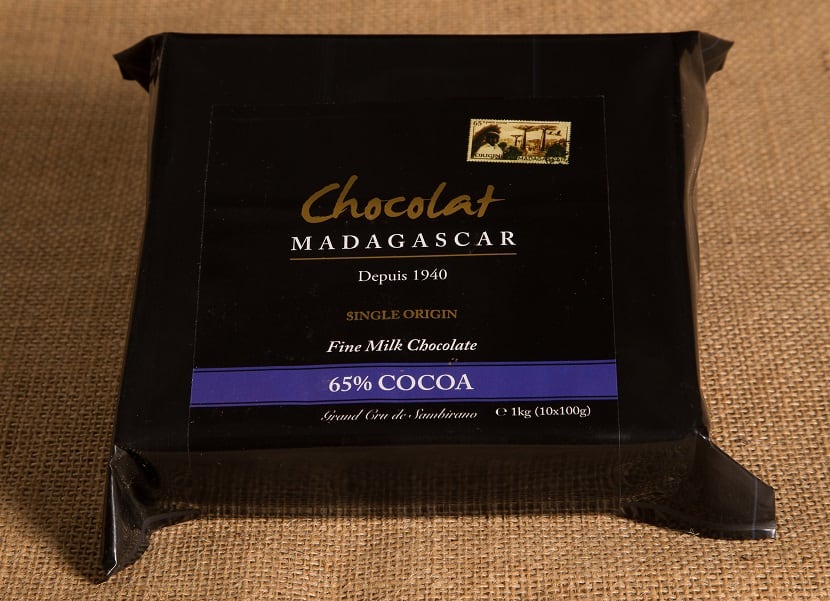
Chocolat Madagascar has developed a 65% cocoa chocolate couverture that tastes like a milk chocolate, but contains nine times less sugar (8 g of added sugar per 100 g - 17 g total sugar). "It's got less sugar than an 80% cocoa dark chocolate bar and it tastes very mellow because of the Madagascan cocoa,” said Kelsall. "It's 65% but the color is light because Madagascan cocoa is a light red Criollo. People who do not like dark will find it palatable. It's not bitter, it's creamy,” he said.
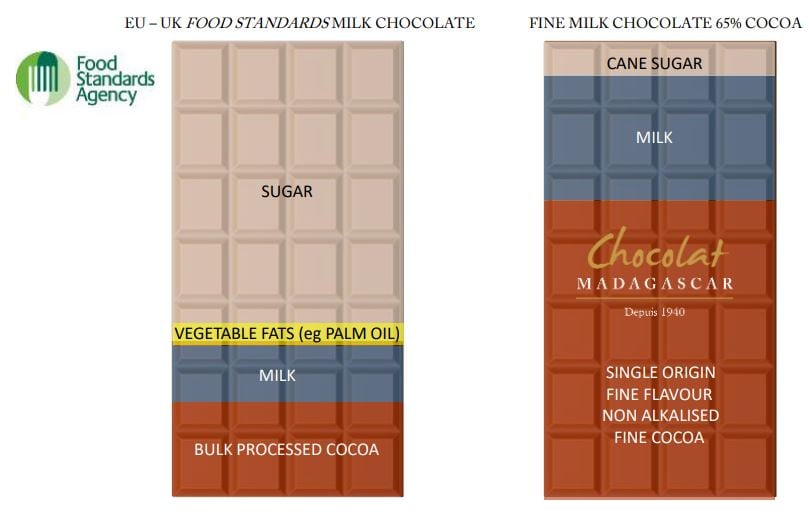
Aisles appealing to need for provenance
"Slowly but surely, we are going to get a bean-to-bar section [in UK and German supermarkets] - a bit like a fine wine aisle,” Neil Kelsall, director of Chocolat Madagascar, told ConfectioneryNews.
"There are more craft producers of quality chocolate and I think people are more worried about provenance and health of their foods."
He said companies, such as UK retail chain Hotel Chocolat - which operates its own cocoa plantation in Saint Lucia – and online premium chocolate subscription service CocoaRunners, are helping up premium chocolate awareness.
“It is a commercial decision by the retailers whether this market is big enough today, but [fine chocolate aisles] will definitely happen in the future,” said Kelsall, adding aisles have already popped up at some WholeFoods and CentralMarket stores.
Value at origin
The director said a move to premium aisles would complement sustainability efforts.
"Going premium ensures sustainability not just in the cocoa origin country where they can get better prices, but sustainability in the richer countries because it creates more jobs,” he said.
Chocolat Madagascar sources its cocoa mainly from three plantations in Madagascar – representing 2,000 hectares together – where it oversees the growing, fermentation and drying.
The plantations – Madagascan-owned by its partner Chocolaterie Robert - produce 400 metric tons (MT) of cocoa beans annually, but have the potential to reach 1,000 MT.
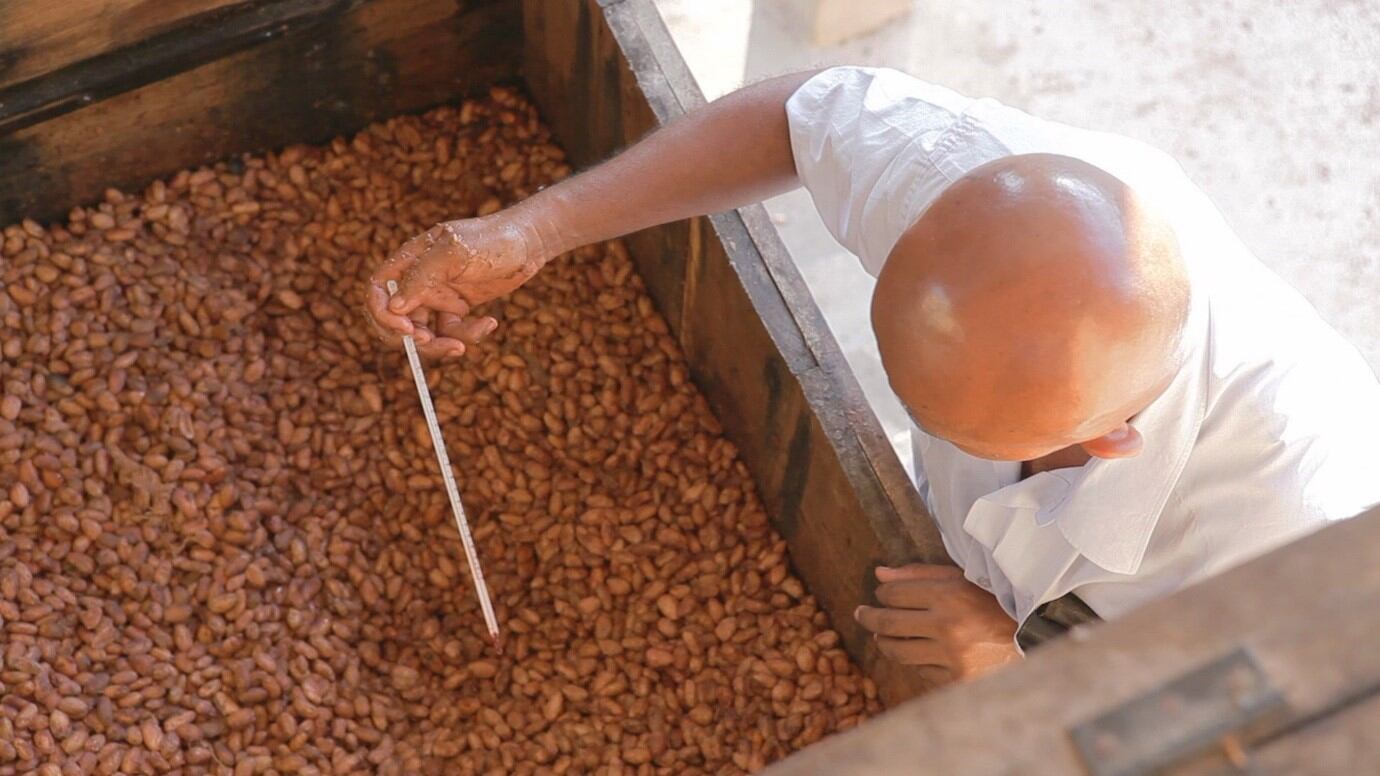
Chocolat Madagascar also manufactures chocolate on the East African island at the Chocolaterie Robert factory in Antananarivo.
"Only about 5% of chocolate value is produced at cocoa origin. The idea of Chocolat Madagascar is to create more GDP per capita at origin,” said Kelsall.
Chocolat Madagascar’s plantations employ more than 750 farmers, while the Chocolaterie Robert factory employs a further 170 people.
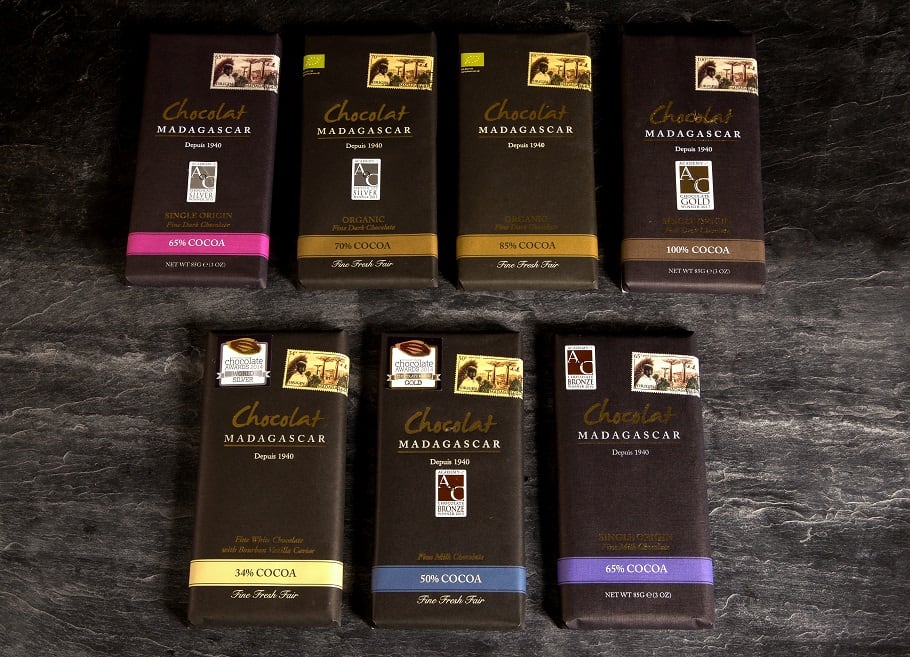
An industry for Madagascar
Factory production volumes have tripled since 2014 through upped capacity of cocoa ingredients, couverture, Chocolaterie Robert’s own brand ‘Chocolat Robert’ (for the local market) and the Chocolat Madagascar brand (for export).
"It's created a premium chocolate industry in Madagascar - another chocolate factory has been created and more brands are being developed, which are separate from us,” said Kelsall.
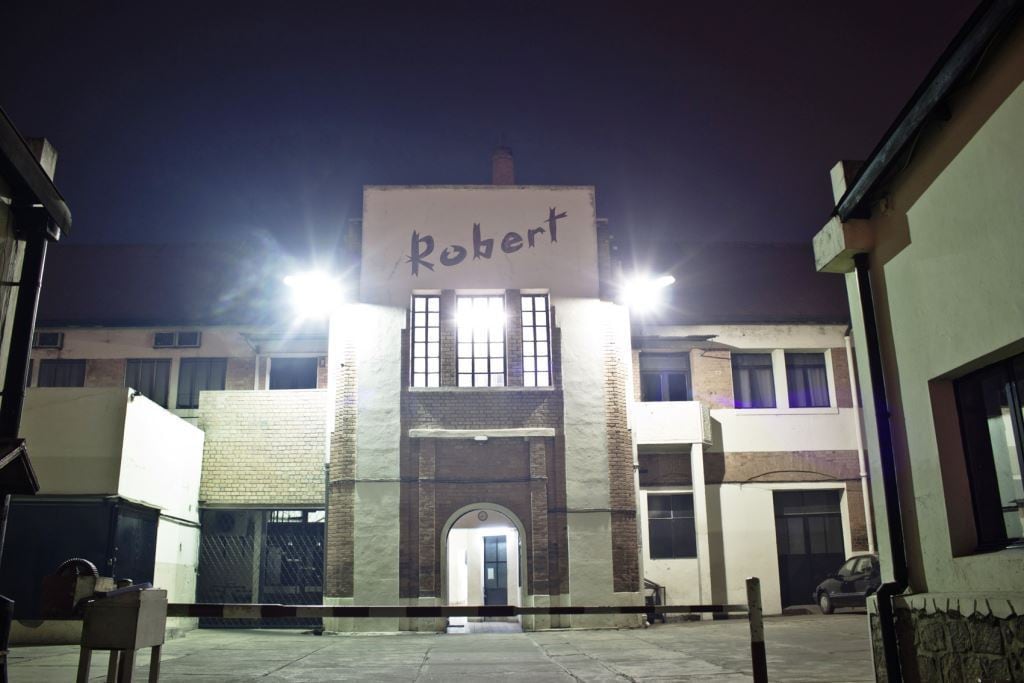
Fruity cocoa for milder chocolate
Madagascar has been able to develop an industry partly due to its unique soil, which allows companies to create milder darker chocolates, said Kelsall.
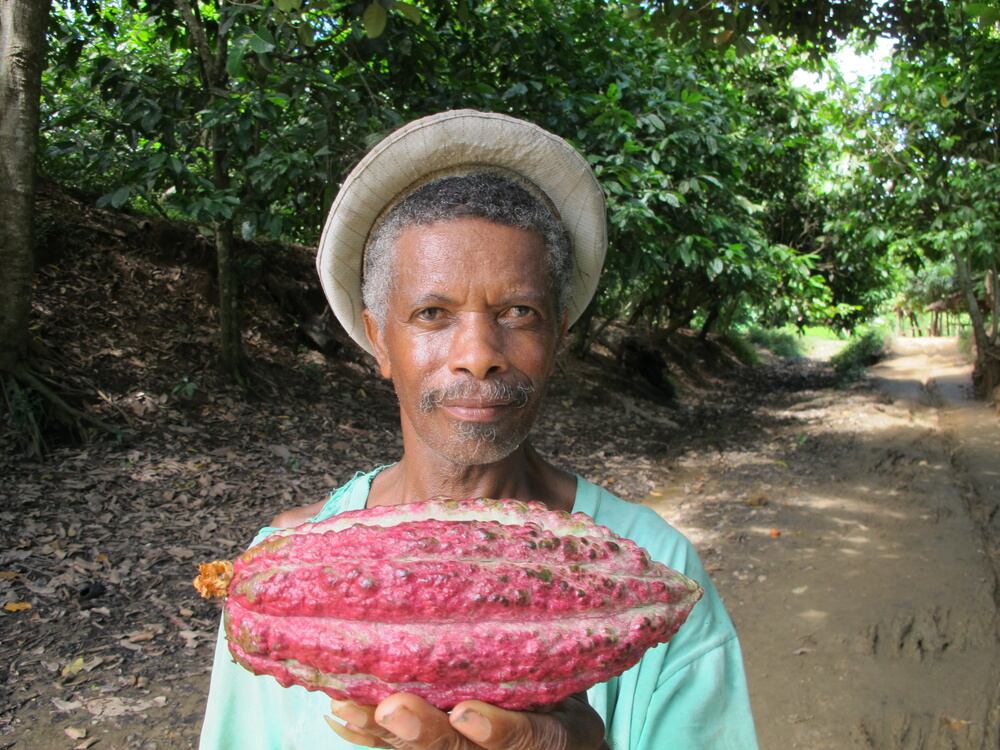
Chocolat Madagascar’s 100% cocoa chocolate couverture - which it has offered for the last three years - has become among its top sellers, because according to Kelsall, it is less bitter than other 100% chocolate bars.
"The cocoa quality is naturally fruity because of the terroir of the land.
"We don’t have to do things like manipulate the flavor through alkalization or adding vanilla. Lower quality cocoa is very bitter and acidic so you have to alkalize it, but we just neutralize it through the integrated supply chain," he said, adding the firm’s cocoa is around two to three times the price of West African cocoa.
Craft chocolate orchestra
The company processes beans into chocolate days after controlled fermentation and drying.
"It's a bit like conducting an orchestra; if something is out of tune, the whole song sounds terrible. We're able to conduct the whole tune as we have everything close to hand,” said Kelsall.
Chocolate Madagascar recently created a 65% couverture that tastes like a milk chocolate (see fact box), as well as packaged roasted cocoa beans coated in 70% dark chocolate, which it sells as 1 kg pack for private label.
This year, the company is prioritizing strengthening its B2B business in Germany and the Far East.
